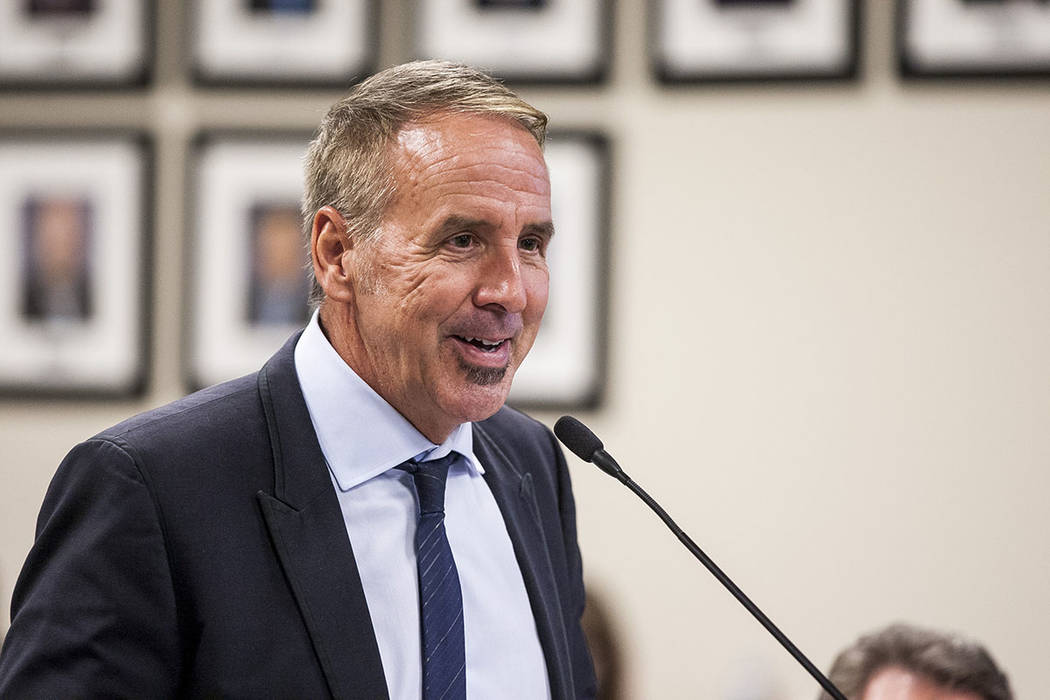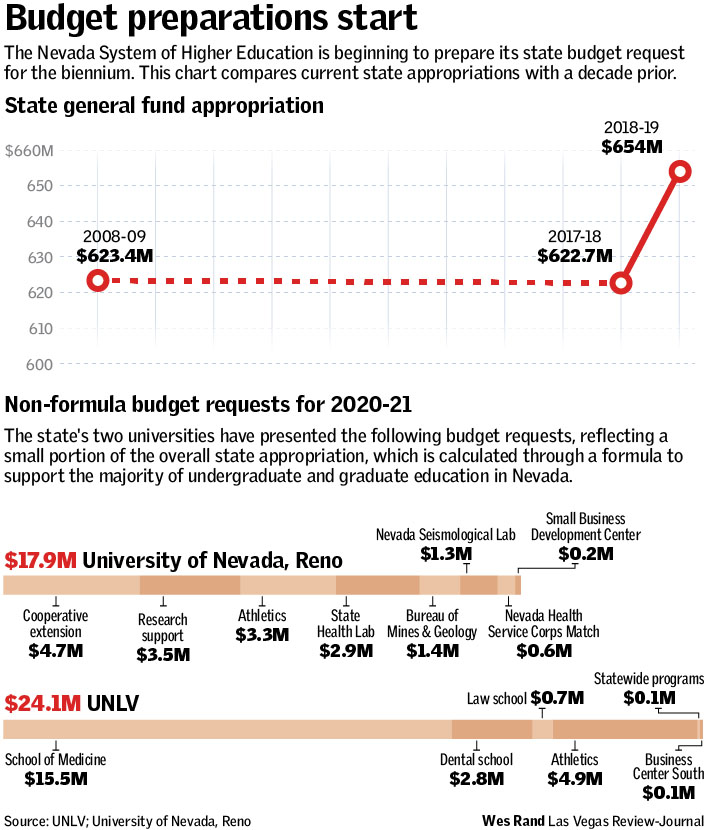Expanded summer school high on wish for Nevada higher ed budget

The Nevada System of Higher Education is beginning to approach everything through the lens of its new strategic goals. First up: asking the state for money.
School presidents presented their 2020-2021 budget wish list to the state Board of Regents recently, with requests ranging from an $8 million water tank at Nevada State College to $3.8 million in planning funds to relocate Desert Research Institute’s anchor facility to Henderson.
But the need for state support for summer school funding rose to the top of the list, at least for Regent Trevor Hayes.
“I can’t think of anything that hits all of our five goals better than that,” he said.
The board approved new strategic goals for the system at the same meeting, which include increasing access to higher education and improving student success.

RIGHT-CLICK TO ENLARGE
Hayes said summer school provides more options for nontraditional students who might be unable to take a full course load throughout the year. Some school presidents included prioritized summer school funding as an aspect of their presentations, too.
“The world has changed,” Hayes said. “We aren’t in the 1950s anymore, where the students don’t work and they can spend all their time on studies and go lollygag around wherever in the summer.”
NSHE Chief Financial Officer Chet Burton said initial calculations show that including summer school in the overall state funding model could cost more than $40 million each year of the next biennium.
That figure is based on the number of credits taken last summer.
“That’s a fairly big price tag,” Burton said.
Currently, the summer school budgets are self-supported by the institutions except for nursing, which receives state funding because it’s a high-demand field, Burton said.
“The goal was to try to get students through those programs quicker,” he said, adding that he will provide the regents with several options regarding summer school funding at the March meeting.
“It could be very limited to programs like nursing. Or, the other extreme is that everything would be included in the model,” he said. “Ultimately, it’s going to also come down to how much is available in the state budget. There’s only so much money available.”
Chancellor Thom Reilly recommends the system keep enhancement requests, such as summer school, to a minimum. The enhancements that were approved in the 2017 Legislative session will cost $88 million in the 2019-20 biennial budget.
Burton said the budget process began a “little earlier than normal” this time because the governor’s staff asked the NSHE to accelerate the process in light of the November election.
The March board meeting will have a heavy agenda, with plans to take a deep dive into budget issues. In April, NSHE will hold a budget summit on how the funding formula works, with plans to invite state lawmakers.
The goal is to bring the final budget recommendations to the June board meeting for approval.
^
Contact Natalie Bruzda at nbruzda@reviewjournal.com or 702-477-3897. Follow @NatalieBruzda on Twitter.













